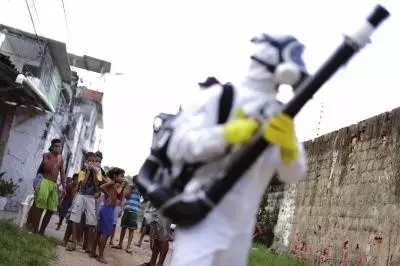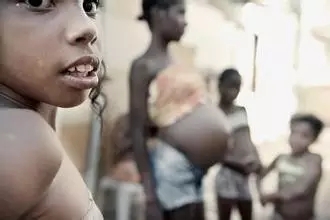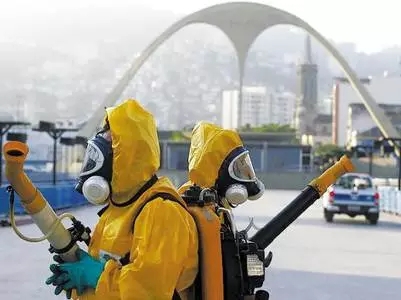马上注册登录,享用更多感控资源,助你轻松入门。
您需要 登录 才可以下载或查看,没有账号?注册
 |
|
×
寨卡来袭,里约奥运还约吗?2016-05-20 SIFIC热点团队 SIFIC官微
寨卡病毒与2016年里约奥运会及残奥会 Zika virus and the Olympic and Paralympic Games Rio 2016 WHO statement
检索:陈志锦
翻译:陈志锦 审核:唐文瑞、陈志锦 编写:陈志锦 世界卫生组织和泛美卫生组织(PAHO)承认,参加2016年8月5日至9月18日里约奥运会和残奥会的运动员和游客们正在寻求关于寨卡病毒感染风险及其预防方法的更多信息。

巴西是目前已报告经蚊持续传播寨卡病毒的58个国家和地区之一。虽然蚊子是寨卡病毒的主要传播媒介,但感染寨卡病毒的人还可以通过不安全的性行为把病毒传播给其他人。寨卡病毒病通常会导致轻微的症状,而且大多数人感染后不会出现任何症状。然而,科学界一致认为,妇女孕期感染寨卡病毒,是导致小头畸形(先天性小脑袋)、其他大脑畸形与功能紊乱及其格林-巴利综合征(一种罕见但可能导致瘫痪和死亡的严重的神经系统疾病)的原因。

以下是对前往里约热内卢的运动员和游客们,及其他存在寨卡病毒传播地区的防控建议: 遵循世界卫生组织和各国卫生当局提供的旅游建议,旅行前咨询卫生工作人员; 在白天,尽可能地使用驱蚊剂,或穿长衣服尽量覆盖身体,且衣服最好是浅色的,以此保护自己免受蚊虫叮咬; 采取安全性行为,如坚持正确地使用安全套,或者在逗留期间和回国后至少4周内禁欲,尤其是已经存在或刚出现寨卡病毒感染临床症状时; 选择空调房间入住,因为空调房为了防止空气外逃,门窗会保持密闭,同时也能够防止蚊子进入房间; 避免前往城镇中没有自来水且卫生条件较差的的贫困拥挤地区,这些地方容易滋生蚊子,被蚊子叮咬的风险较高。

同时建议孕妇不要前往正有寨卡病毒传播的地区,包括里约热内卢。且建议孕妇的性伴侣从有寨卡病毒传播的地区归来后,须采取安全性行为,或整个孕期避免性行为。较幸运的是,巴西奥运会和残奥会将于冬季举行,那时候蚊子较少,被叮咬的风险也较低。

在一份谅解备忘录中,世界卫生组织和泛美卫生组织正给巴西政府提供公共卫生建议,在运动会期间,国际奥林匹克委员会将协同2016年里约当地组委会,采取方法去进一步降低运动员和游客们感染寨卡病毒的风险。除了寨卡病毒,伊蚊还能传播基孔肯雅病、登革热和黄热病,世界卫生组织建议的一个重点工作,就是围绕减少伊蚊的措施。 从现在到八月这段时间,世界卫生组织和泛美卫生组织将继续监测巴西和其他受影响地区寨卡病毒的传播与风险,为其他受灾地区提供寨卡病毒暴发的疫情、风险和预防干预措施发展的更新信息。 编者解读本月15日,北京、广东先后报告2例输入性寨卡病毒病感染病例,两名患者都是从寨卡病毒疫情发生国委内瑞拉回国的人员,目前患者情况稳定,正在接受隔离治疗。我国疾控部门已将寨卡病毒感染病例列入全国传染病信息报告系统,实行网络直报。 寨卡病毒主要通过埃及伊蚊来传播,埃及伊蚊主要分布在我国台湾地区、海南、广东的雷州半岛和云南的边境区域,北京尚未发现过这种蚊子。但是包括北京在内的全国多数省份都分布有白纹伊蚊,这种蚊子也有传播寨卡病毒的风险。今年2月以来,我国内地已经报告了17例输入性寨卡病毒感染病例,其中广东报告12例,目前无死亡病例报告。

目前,国内的所有寨卡病毒感染病例均为输入性病例,且均为寨卡病毒疫区归国人员。奥运会是四年一度的运动盛会,体育明星云集,集激情与技巧于一身,相隔千里,也想一睹风采。而且,寨卡病毒致死率较低,且大部分患者都可以自愈,然而巴西已经有150多万人感染寨卡病毒,且确认了因感染寨卡病毒而患小头症的新生儿人数多达1300多人。 因此,建议参加奥运会的运动员和旅客除了做好防蚊措施以外,根据我国的《寨卡病毒防控方案》(第二版),建议患者及无症状感染者在感染后2-3个月内禁欲,如发生性行为时应使用安全套。
英文原文附录
Zika virus and the Olympic and Paralympic Games Rio 2016
WHO and the Pan American Health Organization (PAHO) recognize that athletes and visitors are seeking more information on the risks of Zika and ways to prevent infection while attending the Olympic and Paralympic Games Rio 2016 (5 August to 18 September 2016).
Brazil is one of the 58 countries and territories which to-date report continuing transmission of Zika virus by mosquitoes. While mosquitoes are the primary vectors, a person infected with Zika virus can also transmit the virus to another person through unprotected sex. Zika virus disease usually causes mild symptoms, and most people will not develop any symptoms. However, there is scientific consensus that Zika virus is a cause of microcephaly (children being born with unusually small heads) and other brain malformations and disorders in babies born to women who were infected with Zika virus during pregnancy, and Guillain-Barré syndrome (a rare but serious neurological disorder that could lead to paralysis and death).
Athletes and visitors to Rio de Janeiro, and other areas where Zika virus is circulating, are being encouraged to: follow the travel advice provided by WHO and their countries’ health authorities, and consult a health worker before travelling; whenever possible, during the day, protect themselves from mosquito bites by using insect repellents and by wearing clothing – preferably light-coloured – that covers as much of the body as possible; practice safer sex (e.g. use condoms correctly and consistently) or abstain from sex during their stay and for at least 4 weeks after their return, particularly if they have had or are experiencing symptoms of Zika virus; choose air-conditioned accommodation (windows and doors are usually kept closed to prevent the cool air from escaping, and mosquitoes cannot enter the rooms); avoid visiting impoverished and over-crowded areas in cities and towns with no piped water and poor sanitation (ideal breeding grounds of mosquitoes) where the risk of being bitten is higher.
Pregnant women continue to be advised not to travel to areas with ongoing Zika virus transmission. This includes Rio de Janeiro. Pregnant women’s sex partners returning from areas with circulating virus continue to be counselled to practice safer sex or abstain throughout the pregnancy. The Games will take place during Brazil’s wintertime, when there are fewer active mosquitoes and the risk of being bitten is lower.
WHO/PAHO is providing public health advice to the Government of Brazil and, under a Memorandum of Understanding, the International Olympic Committee and, by extension, the Rio 2016 Local Organizing Committee, on ways to further mitigate the risk of athletes and visitors contracting Zika virus during the Games. An important focus of WHO advice revolves around measures to reduce populations of Aedesmosquitoes which transmit chikungunya, dengue and yellow fever in addition to Zika virus.
WHO/PAHO will continue to monitor the Zika virus transmission and risks in Brazil and in other affected areas to provide updates on how Zika virus outbreaks, risks and prevention interventions develop between now and August and beyond.

| 














 #AI工具#
#AI工具#



 上传视频拿金币,快来上传你最喜爱的感控相关视频吧!#👈点我了解详情#
上传视频拿金币,快来上传你最喜爱的感控相关视频吧!#👈点我了解详情# /1
/1 